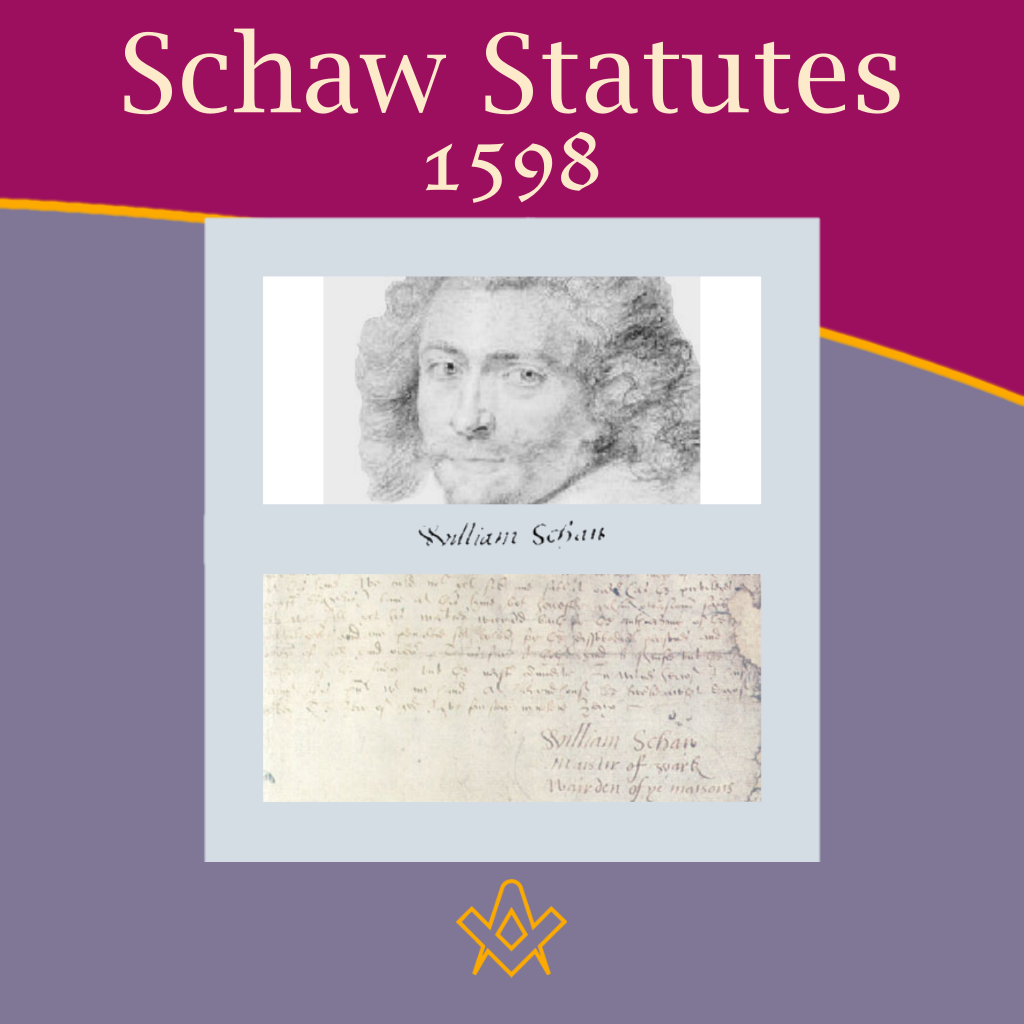Scotland was a wild and rebellious land at the end of the sixteenth century and had long sought to preserve its independence despite wars and invasions.
Scotland was ruled by the son of Mary, the former wife, and widow of Francis II.
The King for the last thirty years, James VI (1566-1625) applied within his kingdom a policy of absolutist divine right, ensuring peace and order.
His mother was executed in 1587 in London. This made him the heir of the virgin Queen, Elizabeth I, whom he succeeded on the throne of England in 1603.
The context – Stone cutters and layers, according to the masonic tradition, arrived in Britain at the time of St. Alban and King Athelstan, and in Scotland built churches, castles, manors and other mansions; they soon permanently installed and established lodges, which were no longer just work sites, but places to meet in.
The Lodge of Kilwinning already claimed to be several centuries old.
The document – On December 28, 1598, the day of the Holy Innocents, and the day after the Feast of St. John the Evangelist, William Schaw (1549-1602), Master of Works for the crown of Scotland, General Supervisor of all masons, applied his signature at the bottom of the Statutes and Ordinances that members of the Craft would have to observe in all circumstances.
The document, which is part of a register consisting of six volumes, is now the property of the Lodge of Edinburgh, Mary’s Chapel, which still honors itself as having been created in the last years of the sixteenth century.
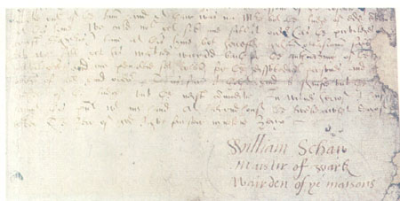
Signature of William Schaw on a copy of the Second Statutes, as “maister of wark” and “wairden of the maisons”, Holyroodhouse, 28 December 1599.
IMAGE LINKED: wikimedia Attribution 4.0 International (CC BY 4.0)
Modern transcription from Scottish English
At Edinburgh the 28th day of December,
The year of God One Thousand five hundred and ninety-eight.
The statutes and ordinances to be observed by all the Master masons within this realm, set down by William Schaw, Master of Work to His Majesty [King James VI] and General Warden of the said Craft, with the consent of the Masters [here]after specified.
Item, First that they observe and keep all the good ordinances set down previously concerning the privileges of their Craft by their predecessors of good memory and especially that they be true one to another and live charitably together as becomes sworn brethren and fellows of [the] Craft.
Item, That they be obedient to their wardens [1], deacons [2] and masters in all things concerning their Craft.
Item, That they be honest, faithful and diligent in their calling and deal uprightly with the masters or owners of the works that they shall take in hand, be it in task, meat and fee, or weekly wage.
That none [shall] take in hand any work, great or small, which he is not able to perform in a qualified manner under the pain of forty pounds or else the fourth part of the worth and value of the said work, and that by and through any adequate amends and satisfaction to be made to the owners of the work at the sight and discretion of the Warden-General, or in his absence at the sight of the wardens, deacons and masters of the Sheriffdom where the said work is being constructed or worked.
That no master shall take any other master’s work over his head, after the first master has agreed with the owner of the work either by contract, orally or verbal condition, under the penalty of forty pounds.
That no master shall take the working of any work that other masters have worked at before, until the time that the first workers are satisfied [i.e. paid] for the work which they have done, under the penalty previously mentioned.
That there [shall] be one warden chosen and elected every year to have charge over every lodge, as they are divided, and that by the votes of the masters of the said lodges, and the consent of their Warden General if he happens to be present. And otherwise that he be advised that such a warden has been chosen for such a year to the end that the Warden-General may send directions to the elected warden.
That no master shall take any more apprentices than three during his lifetime without the special consent of all the wardens, deacons and masters of the Sheriffdom where the said apprentice that is to be received dwells.
That no master shall take and bind any apprentice for fewer than seven years and likewise it shall not be allowed to make the said apprentice Brother and fellow in the Craft until the time that he shall have another seven years after the end of his apprenticeship [3] without a special licence granted by the wardens, deacons and masters assembled for that purpose, and that sufficient trial be made of the worthiness, qualification and skill of the person that desires to be made [a] fellow in [the] Craft, and that under the penalty of forty pounds to be regarded as a pecuniary penalty from the person that is made [a] fellow in [the] Craft against this ordinance, besides the penalties awarded against him by the lodge where he remains.
That it shall not be lawful for any master to sell his apprentice to any other master, nor to dispense with the years of his apprenticeship by selling the apprentice to himself, under the penalty of forty pounds.
That no master shall receive any apprentice without signifying the same to the wardens of the lodge where he lives, to the end that the said apprentice’s name and the day of his reception may be orderly entered in the books.
That no apprentice [shall] be entered except in the same order that the day of their entries are booked.
That no master or fellow of craft be received or admitted without there being six masters and two entered apprentices present [4], the warden of the lodge being one of the said six, and that the day of the receiving of the said fellow of craft or master be properly booked and his name and mark inserted in the said book with the names of his six admitters and entered apprentices, and the names of the intenders that shall be chosen for every person shall also be entered in their book.
Provided always that no man shall be admitted without an assay and sufficient trial of his skill and worthiness in his vocation and Craft.
That no master [shall] work [at] any mason work under [the]charge or command of any other craftsman that takes in hand or upon himself the working of any mason work.
That no master or fellow of craft receive any cowans [5] to work in his presence or company, or send any of his servants to work with cowans under the penalty of twenty pounds as often as any one shall offend against this [rule].
It shall not be lawful for any entered apprentice to undertake any greater task or work in hand from an owner that will be for more than the sum of ten pounds, under the penalty aforesaid, to wit twenty pounds, and that task being finished they shall not enterprise further without licence of the masters or warden where they live.
If there shall be any question, strife or variance among any of the masters, servants or entered apprentices, the parties that are in debate shall signify the cause of their quarrel to the particular wardens or deacons of their lodge within the space of twenty-four hours under the penalty of ten pounds, to the end that they may be reconciled and in agreement and their variance removed by the said wardens, deacons and masters; and if any of the parties shall remain wilful or obstinate they shall be deprived of the privileges of their lodge and not permitted to work thereat until such time as they submit themselves to reason in the sight of their wardens, deacons and masters.
Item, That all masters undertaking any work be very careful to see that their scaffolding and footways be surely set and placed, to the end that through their negligence and sloth no hurt or injury may come to any person working on the work, under the penalty of prohibiting them thereafter from working as masters in charge of any work, but ever to be subject all the rest of their days to work under another principal master having charge of the work.
Item, That no master is to receive or reset [wrongly acquire the property of another] any other master’s apprentice or servant that shall happen to run away from his master’s service, or entertain him in his company after he has got information of the position, under the penalty of forty pounds.
Item, That all persons of the mason craft [shall] convene at the time and place after being lawfully warned, under the penalty of ten pounds.
Item, That all the masters that may be summoned to any assembly or meeting shall be sworn by their great oath that they not hide or conceal faults nor wrongs done by any to another, nor the faults or wrongs that any man has done to the owners of the works that they have in hand as far as they are aware, and that under the penalty of ten pounds to be recovered from these who concealed the faults.
Item, It is ordained that all the aforesaid penalties shall be taken from the offenders and breakers of these ordinances by the wardens, deacons and masters of the lodges where the offenders live and be distributed ad pios usus [meaning – for religious reasons] according to good conscience by the advice of the aforesaid.
Item, And for the fulfilling and observing of these ordinances as set down here, all the masters convened on the aforesaid day bind and oblige themselves faithfully hereto. And therefore they have requested their said Warden General to subscribe this present document with his own hand to the end that an authentic copy hereof may be sent to every particular lodge within this realm.
William Schaw
Master of Work
Footnotes
References
[1] – Warden (Wardene) – This lodge officer has nothing to do with the modern office of Warden, he is the President of the Lodge, today we would say Worshipful Master.
[2] – Deacon (Dekyn) – His role is to assist the Supervisor in the management of the Lodge.
[3] – According to this Item, the term of apprenticeship is seven years, but it is still necessary for the apprentice to work during seven years more for the same Master to be received companion (fellow craft).
[4] – This Item defines the state of entered apprentice (Enterit prenteiss), attributed to the apprentice at the end of his apprenticeship, apparently during a reception ceremony.
[5] – Cowan – Name given in Scotland to a worker who performs masonry work without having learned or even belonged to the Craft.
Recent Articles: manuscripts
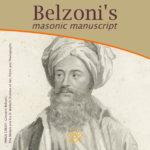 Belzoni's Masonic Manuscript is a valuable resource for anyone interested in the history and practices of Freemasonry, as well as for those interested in the broader cultural and social history of the early 19th century. The manuscript provides a rare glimpse into the inner workings of the organization, and offers insights into its beliefs, values, and practices. It is a fascinating document that continues to captivate and intrigue scholars and freemasons alike. |
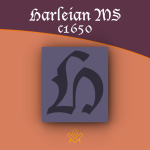 There are two known 'Harleian Manuscripts' which allude to the earliest constitutions of Masonry. |
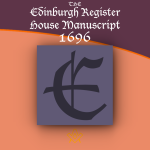 The Edinburgh Register House Manuscript (1696) At the time the manuscript was written in Edinburgh, Scotland was the home to various lodges, including those of the operative Masons of Edinburgh, it provides an interesting Masonic Catechism with questions and answers, a genuine ritual of admission. |
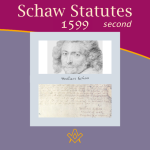 The Second William Schaw Statutes (1599) We look at a modern transcript of the second William Schaw Statutes dated 1599. An operative masons charter for stone cutters and layers in the building industry of the time. A set of rules and regulations including penalties. |
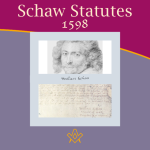 The First William Schaw Statutes (1598) We look at a modern transcript of the first William Schaw Statutes dated 1598. An operative masons charter for stone cutters and layers in the building industry of the time. |
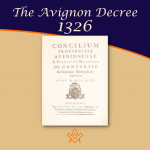 The Avignon Decree (1326) Papal Bull The several Papal declarations against Freemasons after the formation of the Grand lodge in England in 1717 are well known. The Avignon Decree (1326), published 400 years prior, is the earliest known document to set out the Catholic Church's intentions… |
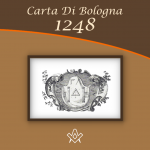 The Bologna Statutes Or Carta Di Bologna The Bologna Statutes or Carta Di Bologna 1248 - Masonic document of Operative Masonry, the oldest one found to date. |
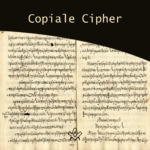 What is the connection between the Copiale Cipher and the great enlightened society of oculists ? |
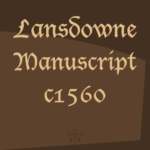 A very foolish legendary account of the origins of the Order of Freemasonry |
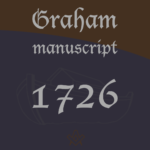 The Graham Manuscript dating from 1726 is an early Masonic document that calls upon Noah and this 3 sons in respect to Masonry, an alternative allegory to the Hiram legend. |
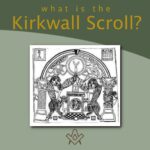 The Kirkwall Scroll is a hand-painted floor cloth depicting a myriad of symbolism |
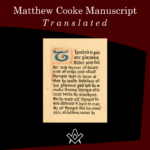 Matthew Cooke Manuscript was written c1450. A transcript of a yet older document, written by a Speculative Mason |
 Are you interested in the 'musty old documents of the past'? This article first appeared in The Builder magazine,1923 |
masonic knowledge
to be a better citizen of the world
share the square with two brothers

click image to open email app on mobile device


